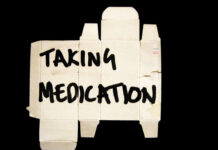Vikas Saini: Protecting Patients From Excessive Medicine
In this piece for the BMJ, Jeanne Lenzer profiles Vikas Saini, a cardiologist who is working to fight against excessive medical treatment. His work with...
Kids Diagnosed with Autism More Likely to Get Psychotropic Drugs
Children diagnosed with an Autism Spectrum Disorder (ASD) are much more likely to be prescribed a psychotropic medication.
Trust Falls – Are We in a New Phase of Corporate Research?
From The Scholarly Kitchen: We may be in a new phase of corporation-funded research. According to the 2016 Science & Engineering Indicators from the National...
Selling Adult ADHD: NPR Coverage Helps Advance Drug Industry
From HealthNewsReview: NPR recently reported on a study claiming that a test of just six simple questions can reliably diagnose adults with ADHD. Unknown to...
“How Open Data Can Improve Medicine”
“Those who possess the data control the story.” In the wake of the reanalysis of the infamous Study 329, where scientific data claiming the antidepressant Paxil was safe and effective for teens was egregiously manipulated, researchers are pushing for open access to raw data. “The issue here, scientists argue, is that without independent confirmation, it becomes too easy to manipulate data.”
Researchers Test Harms and Benefits of Long Term Antipsychotic Use
Researchers from the City College of New York and Columbia University published a study this month testing the hypothesis that people diagnosed with schizophrenia treated long-term with antipsychotic drugs have worse outcomes than patients with no exposure to these drugs. They concluded that there is not a sufficient evidence base for the standard practice of long-term use of antipsychotic medications.
The $3 Billion Research Breakdown
In this piece for Medscape, Jodi S. Cohen chronicles the research malpractice case of child psychiatrist Mani Pavuluri, who put vulnerable children at serious risk...
Treatment-Resistant Depression as a Sign of Unconscious Health
In this video, Dr. Elio Frattaroli describes how biological explanations for "treatment-resistant depression" often ignore the meaning and context of a patient's suffering. He...
FBI Raids Lab That Pays Doctors to Promote Genetic Tests
From STAT: Federal investigators recently searched Proove Biosciences, a genetic testing company that purports to determine an individual's likelihood of becoming addicted to opioids. Proove's genetic...
Danish Study Finds Better 10-year Outcomes in Patients Off Antipsychotics
Study finds that 74% of patients with a psychotic disorder off antipsychotics at end of 10 years are in remission.
“Electric Shock Therapy Led to Sunderland Patient Having Permanent Fit”
Update: Elsie Tindle has sadly passed away after a forced electroshock treatment triggered an epileptic fit and permanent brain damage. The psychiatrist, Eugene van...
Call to Monitor Adverse Effects of Antipsychotics in Youth
Researchers point to the risks of using antipsychotics with youth and caution against the practice.
“We Need to Unlock the Brain’s Secrets—Ethically”
-The Presidential Commission for the Study of Bioethical Issues has released a report on key ethical challenges facing the BRAIN Initiative.
Vanda Puts Antipsychotic Side Effect Front and Center in TV Ads
From FiercePharma: Vanda Pharmaceuticals, which makes the antipsychotic drug Fanapt, has recently rolled out a national TV campaign to raise awareness of akathisia. The company...
Antipsychotics Increase Mortality Risk in Patients with Parkinson’s Disease
A new study in JAMA Neurology finds that the use of antipsychotic drugs more than doubled the risk of death in patients with Parkinson’s...
Editorial Takes On Conflicts of Interest and Propaganda in Psychiatry
In a scathing editorial in this month’s Psychotherapy and Psychosomatics, Dr. Giovanni Fava takes aim at prominent medical experts who have downplayed the role...
Psychologist Rethinks Psychotropic Medications, Calls for Renewed Dialogue
Psychologist and Professor Amber Gum has published the story of her personal journey of rethinking psychotropic medication in a special issue on "The Politics of Mental Health" in The Journal of Medicine and the Person. Influenced by Mad in America and the work of Robert Whitaker, Gum became aware of evidence that “suggests that psychotropic medications are less effective and more harmful than most believe” and now hopes to encourage other mental health professionals and researchers to engage in open-minded, critical self-assessment of standard practices.
PTSD, Psychotropic Medication Increase Dementia Risk
From Healio: Researchers recently found that veterans diagnosed with PTSD and prescribed antidepressants or atypical antipsychotics are at a higher risk for dementia than veterans...
Mobile Apps for Mental Health Lack Transparency in Data Sharing
Research illustrates privacy concerns with how mental health applications collect and share users’ data.
More Critiques of the Lancet Antidepressant Study
Researchers and advocates have continued to critique The Lancet's recent study claiming to prove definitively that antidepressants are more effective than placebo. Below are a...
Philosophers Challenge Psychiatry and its Search for Mechanisms of Disorder
Attempting to locate the mechanisms of psychiatric disorder is a step in the wrong direction and fails to challenge potentially unjust social practices.
New Bill Targets Asian-American, Pacific Islander Community
From NBC News: Representative Judy Chu recently introduced the Stop Mental Health Stigma in Our Communities Act, a bill to reduce mental health stigma in...
The Truth About Long-Term Antidepressant Use
From The Guardian: As antidepressant prescriptions rise and have doubled in the past decade, mental health experts are becoming increasingly concerned about adverse effects and...
“Public Wary of Faster Approvals of New Drugs, STAT-Harvard Poll Finds”
According to a new STAT-Harvard poll, the majority of Americans oppose new legislation that would speed up the approval of new drugs and medical...
Rise in Psychiatric Prescriptions With NOS Diagnosis
A “not otherwise specified” (NOS) diagnosis is often used when an individual may have some symptoms related to a psychiatric diagnosis but does not meet enough criteria to warrant a particular diagnosis. A new study, published online ahead of print in Psychiatric Services, reveals that the proportion of mental health visits resulting in such NOS diagnoses rose to nearly fifty percent, and that these diagnoses do not result in more conservative psychiatric drug prescriptions.

























